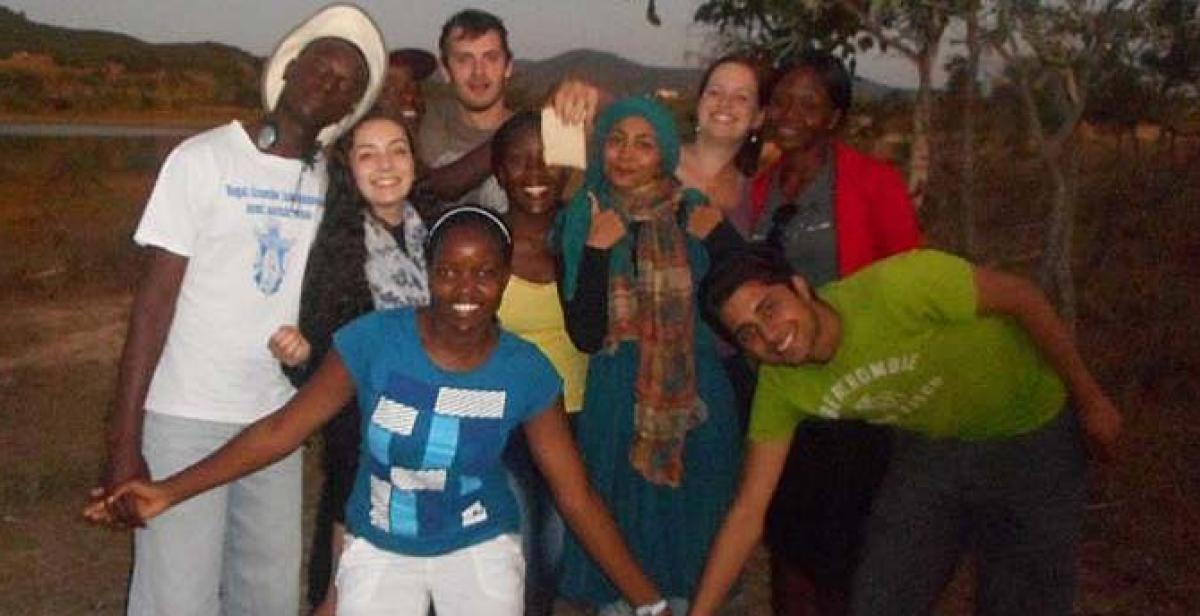Describe the British in one word: brisk
We, the British are brisk, in the way we walk, the way we talk. More than once, I have been told I speak too quickly and on our way from the DOMCCP (Diocese of Mutare Community Care Programme) Team house to the bus stop it is, more often than not, one of the UK volunteers at the front, striding out, pretending they can cope with the level of heat in Manicaland Province.
However, five weeks into the programme we have started to pick up Zimbabwean traits. Whether this is developing a sugar cane addiction and honing the ability to polish off a two metre long stick of sugar cane in a mere five minutes, saying “it’s fine” to mean “yes please” and not “no thank you”, or rolling your r’s whenever you say “alright”, the cultural exchange is well and truly in full swing. Likewise, the national volunteers have started to pick up British traits: in our team house the level of banter has risen to such high standards it’s almost like being back in the pub with a crowd of friends you’ve known for years. Seb, the UK team leader often jokes with Ngoni, the national team leader about getting married and buying her off her family (known as ‘lobola’, sort of like reverse dowry) for two lychees’ and an empty bottle of water. For the record, lychees’ are sold as one dollar for fifteen.
At first for the UK volunteers our British-ness was very much in the way, for example when we got into a combi for the first time and marvelled at how this many people could fit into a 15 seater minibus and be this relaxed about it. There is a severe lack of personal space, you may end up sitting with your arms around the two people you are sandwiched in between, with just enough room to breathe. Think awkward first date stretch at the cinema, but on both sides, then add a touch of Zimbabwean dance music and you well and truly have the combi experience.
Describe Zimbabweans in one word: kind
As a group, Brits tend not to be very good at accepting gifts. This is potentially problematic, when you consider the kindness and generosity of the Zimbabwean people. Five weeks into the programme, and every other session we go to, we still come back bearing all sorts of food. We went to a nutritional garden to conduct a survey, and ended up helping out for maybe half an hour before conducting a workshop on group dynamics. After some very positive feedback they then thanked us by giving us produce that they had grown. Peanuts, pumpkins, spring onions, tomatoes… the typical British response of “oh no, we can’t possibly!” would cause offence so we accepted and thanked them profusely, the UK volunteers looking suitably embarrassed. Another time, we go to a session with a People Living with HIV (PLHIV) support group and find they’ve brought lots sugar cane from their garden for us to have. When we can’t carry it all between the three of us that conducted that session, they help us to carry it back 1.7 (Zimbabwean) kilometres to the road to catch our bus.
Another facet to the Zimbabwean kindness is social enterprise. So far, we have been conducting sessions with PLHIV support groups and Rural Women’s Assemblies (RWAs) on effective business planning, record keeping and marketing. When finding out more about the various businesses and income generating activities they run, it becomes apparent that the funds generated more often than not go towards disadvantaged groups, such as paying school tuition fees for orphaned children. This local child sponsorship-type programme is common to all the areas in which my ICS team works and people seem to, genuinely, love supporting each other in this way. I think this is why they are so grateful when we deliver sessions designed to improve their business, as it not only will improve their own livelihood, it will help them benefit their community.
Written by ICS volunteer Charlotte Brass



